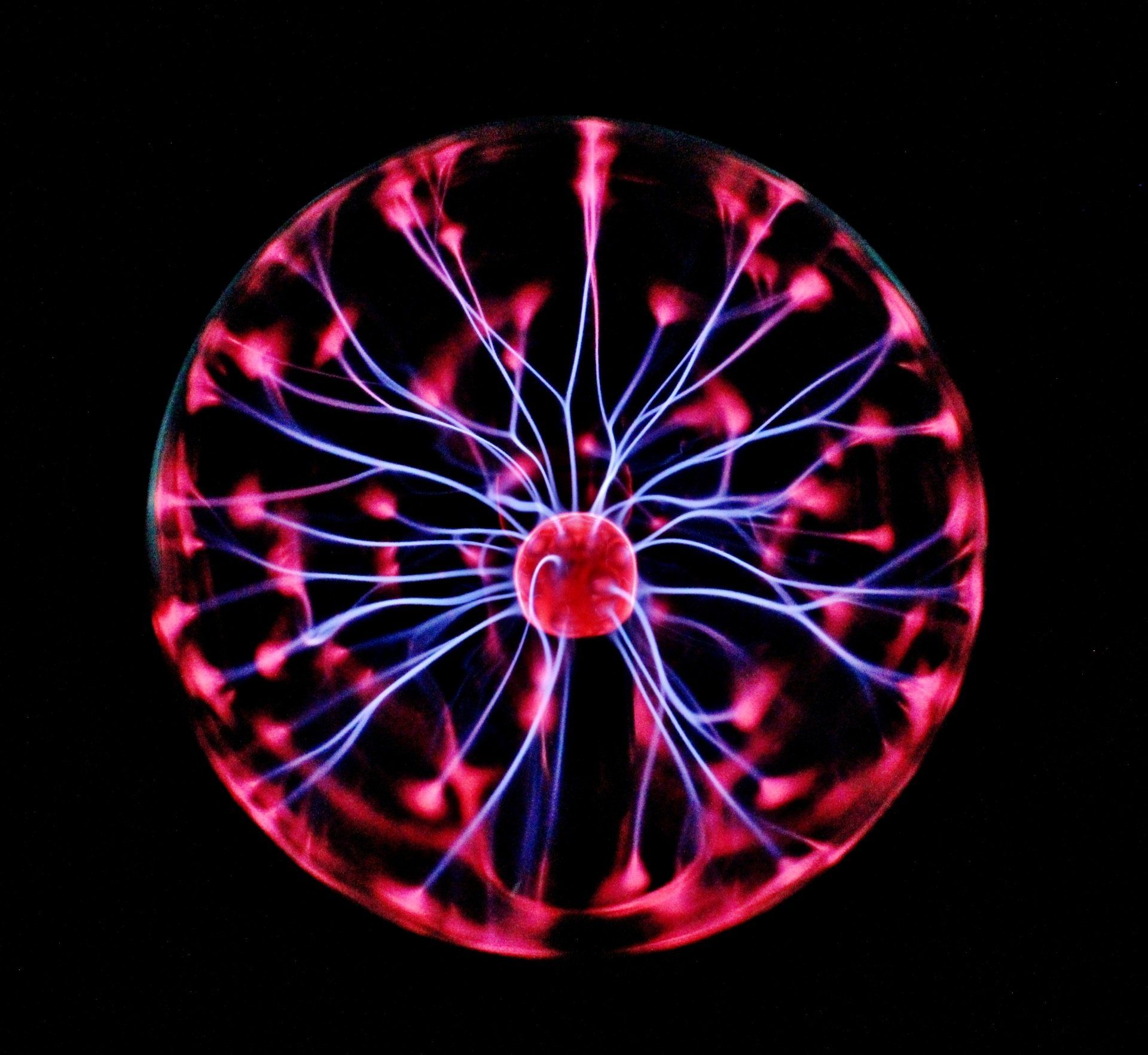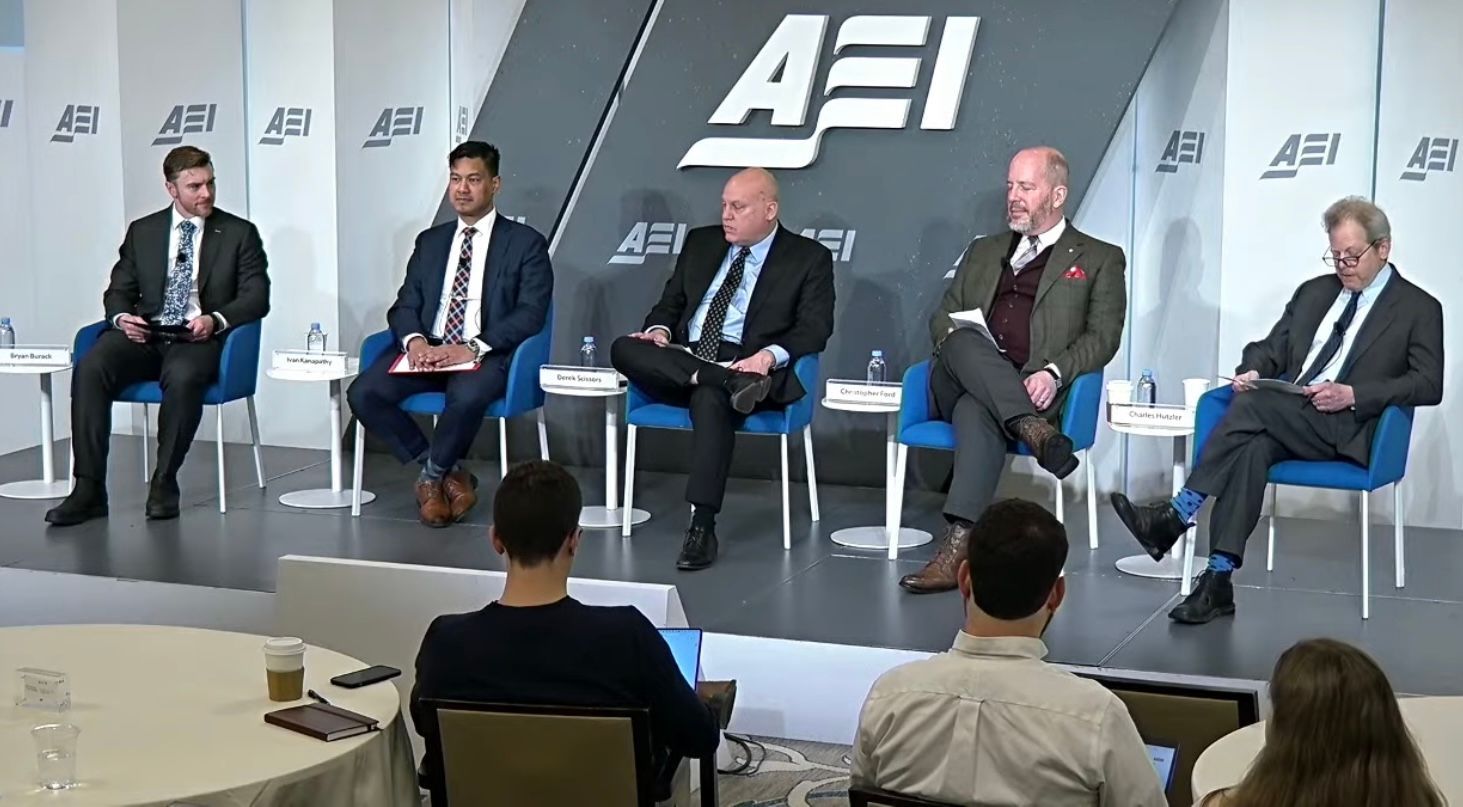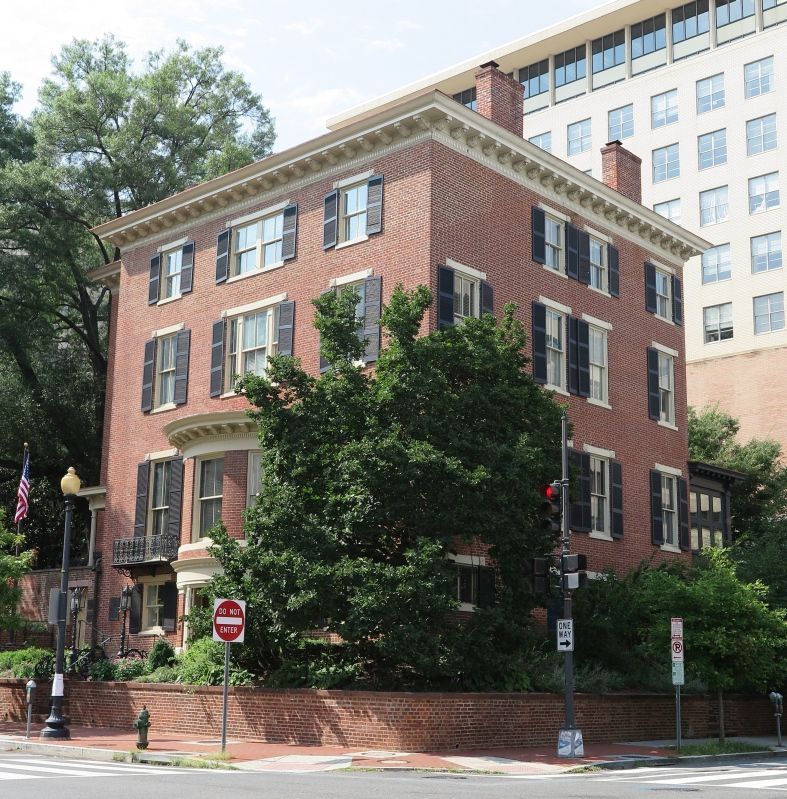The Hon. Christopher A. Ford
New Paradigms Forum -- International Security Policy Since 2009
Strengthening the NPT Review Process: Substance is Key
Note:
This essay was presented to the 8th Annual U.N.-ROK Conference on Nonproliferation and Disarmament Issues, Jeju Island, Republic of Korea (November 16, 2009).
I am grateful to the United Nations and the Republic of Korea for organizing this conference, and for their kindness in making possible my participation. This is an important time to be addressing these topics, and I’m grateful for the chance both to attend and to be able to offer a few thoughts on the subject of the Nuclear Nonproliferation Treaty (NPT) review process.
To ask about how to strengthen the review process requires first giving some thought to what ails the NPT regime of which it is a part, for I do not believe that the problems of the process can be separated from those of the regime as a whole. In my view, in fact, the problems of the process do not stem from any particular institutional or procedural defect in the mechanisms by which diplomats gather at NPT Preparatory Committee (PrepCom) or Review Conference (RevCon) meetings to discuss Treaty- related issues. There may be better or worse ways to organize and run such events, to be sure, but these differences aren’t likely to be terribly important.
The deeper problem is that there does not today seem to be a broad agreement among States Party about the regime’s basic principles and core values – and about the importance of upholding them. If we cannot address this, it won’t matter how we “strengthen” review procedures. On the other hand, if we do manage to make real progress on NPT substance, today’s procedural difficulties will probably largely take care of themselves. In neither case is there much reason to waste time today with specific process-focused institutional “fixes.”
That is why I generally do not like to talk very much about reforms of the process itself. There have been a number of proposals for such reform made in recent years, from the establishment of a permanent secretariat to the holding of more (or fewer) meetings, to changes in the committee structure. For my part, I think it would be a pointless effort – or perhaps even counterproductive – just to adjust the procedural scenery, or to add new bureaucratic layers atop substantive fissures that such layers in themselves would do nothing to close.
The review process will work better to the extent that we can help close the gaps that have developed between States Party on fundamental issues, but not otherwise – no matter how many clever procedural schemes we adopt. Without serious efforts to repair the regime’s coherence, and to restore its members’ commitment to and prioritization of its core goals, such institutional fiddling could amount to no more than rearranging the deck chairs on a sinking ocean liner.
I. The Middle East
Consequently I’d like today to offer my thoughts on two issues that are essentially substantive, but which I have seen acquire considerable salience in how the diplomatic community handles NPT review procedure: the Middle East and nuclear disarmament. Let me begin with the former, for I have not publicly addressed the Middle East since leaving government, and I believe it is worth making a few points.
One of the issues I see hanging increasingly problematically over the NPT review process is the effort being made by Arab governments to turn the Treaty forum into an instrument of anti-Israeli political mobilization on the subject of nuclear weapons. I should say at the outset that I do genuinely understand and appreciate the concerns that Arab governments have about NPT universality, and their desire that Israel accede to the Treaty as a non-weapons state. The message of Arab frustration with the lack of progress on this issue is palpable, and the message they wish us to hear is also clear: they demand “progress” on this front, and wish us to believe that this is the price they expect in return for their continued cooperation with and within the NPT review process.
My first acquaintance with these dynamics came at the 2005 NPT RevCon, which was quite deliberately brought to an ugly and consensus-defeating collapse by Egyptian diplomats notwithstanding the progress we were making on substantive issues in fora such as Main Committee III, which I myself had the honor of addressing. Since then, Arab governments have steadily laid the groundwork for holding the 2010 NPT RevCon hostage over the Israeli issue. Arab diplomats have repeatedly broken with precedents for handling these diplomatically tricky matters at the International Atomic Energy Agency (IAEA) General Conference in favor of more provocative approaches, and they have used the IAEA and U.N. fora to orchestrate an escalating series of political confrontations over the question. They have steadily been sending the message again and again that they need to be able – and soon – to show movement in implementing the Resolution on the Middle East that was agreed at the 1995 RevCon, or else their patience will run out in some unspecified but impliedly significant way.
I certainly do not disagree that there has been little or no progress in implementing the 1995 Middle East Resolution, and if Arab governments expected that Resolution quickly to yield tangible results, it would be understandable for them to feel very frustrated. The problem, however, is that if the stated aim of Israeli NPT accession is in fact their objective, proponents of this Arab pressure strategy have picked a singularly bad time and way to try to advance this agenda.
After all, this great flurry of effort to demand progress on the Middle East Resolution has developed in the wake of the revelation in 2002 that Iran has for years been secretly pursuing a clandestine nuclear program that would give it the capability to produce fissile material usable in nuclear weapons. Indeed, the Arab diplomatic program to turn up the diplomatic heat on Israel has accelerated in direct proportion to the international community’s failure to undertake effective enforcement policies to return Iran to compliance with its nonproliferation obligations – and to the development of ever more information indicating that Iran’s work has included weaponization research.
This contemporary hue and cry over Israeli non-accession to the Treaty, in other words, has been undertaken – and stepped up – precisely as NPT States Party have shown themselves unable to enforce the most fundamental terms of the very treaty to which Arab governments wish Israel to accede. Just as Israel is being told that it must abandon whatever nuclear weapons capabilities it may have, the Treaty regime is demonstrating that it cannot keep the most hostile, anti-Israeli power in the region from developing nuclear weapons itself. To me, that makes no sense whatsoever.
In light of the worrisome realities of the contemporary Middle East, I would myself have prioritized things rather differently. I would have thought that the highest priority for anyone who really wants to see Israeli NPT accession would be to cooperate emphatically and diligently in ensuring the rapid and effective enforcement of Iran’s nonproliferation obligations. I would certainly not think it useful to toss a spanner into the NPT diplomatic process over an Israel whose retention of a presumed nuclear capability is made to seem ever more reasonable and justified by Iran’s unchecked progress toward its own nuclear weapons capability.
So perverse does this seem to some observers, in fact, that there are those who suspect that this Arab diplomatic initiative isn’t really about Israel at all. Could it be that this whole campaign is really about Iran ? That is, could this be an effort by Arab governments to develop an ostensibly Israel-focused rationale for edging away from adherence to the nonproliferation regime themselves – but in ways that these increasingly insecure Arab regimes would find too hard to justify, politically, if they had to admit that this shift were really aimed at a fellow Muslim state? Could these superficially anti-Israeli diplomatic squabbles, in other words, presage and constitute the first signs of the very “cascade” of regional proliferation of which experts have been warning ever since elements of Iran’s secret nuclear weapons program first came into public view?
I do not know the answer, of course, and I am confident that the Arab governments involved would publicly deny any such suggestion. Whatever the reason for the nature and timing of the anti-Israeli campaign in contemporary NPT-related fora, however, the Middle East issue strikes me as being one of the more worrisome potential ways in which the NPT review process could be derailed. If we wish to strengthen the process, this landmine must be sidestepped. So how should we deal with it?
To begin with, I believe we should look for initiatives that have some real potential to bring Israelis and Arabs into something remotely resembling a dialogue on nuclear-related issues. Yet we should not delude ourselves about what is possible, at least in the short term. Let us speak frankly here. Especially given the limpness of the international community’s response to Iran’s nuclear provocations and the perversity of the Arab world’s public foot-dragging on this issue, to accept nothing but quick and dramatic progress on the Israeli nuclear question is to oppose all progress. No one knows this, or should know it, more than the very Arab governments who increasingly insist upon rapid movement.
When I was running NPT diplomacy in the last two years of the Bush Administration, we thought that just about the only genuinely promising idea out there was an extremely modest one: namely, to revive the idea of an IAEA-sponsored Arab- Israeli workshop on lessons learned in other areas of the world in reaching agreement on regional Nuclear Weapons Free Zones (NWFZs). Such a mere workshop would certainly not be dramatic progress on the issue of NPT universality, but in contrast to most other initiatives on the subject, it seemed actually to be achievable. It would be an important first step – and no small thing for Arabs and Israelis to be engaged in any such interaction at all. For the moment, something like that still seems to me to be the kind of thing we should be aiming to achieve – both in order to facilitate future progress on this specific issue and in order to prevent the “Middle East question” from derailing the NPT review process in the interim.
There really isn’t the option of doing more in the short run. If they really do desire progress on the Israeli issue, Arab governments should stop making things harder for themselves by inflating the expectations of whatever domestic or regional political constituencies these high-profile anti-Israel initiatives are intended to address. If progress is the goal, this is a time and an issue not for fiery rhetoric, but for modest, initial steps.
Nor should we forget that the real dynamic destabilizing the region in these regards is Iran’s potential emergence as a nuclear power, and not Israeli capabilities – with which, after all, the Arab states have become quite accustomed to living, and not entirely disadvantageously at that. Accordingly, it is important to the health of the regime as a whole (let alone the review process), for other States Party to work closely with Arab governments to reinvigorate multilateral nonproliferation policy.
The single most valuable step toward a Middle East free of nuclear weapons that I could imagine would be seeing the international community suddenly reverse course and start taking seriously the challenge of forestalling the region’s ugly slide towards proliferation. To put it crudely, anyone who really wishes Israel to accede to the NPT should stop giving the Israelis more excuses – and indeed not just excuses but, truth be told, compelling reasons – not to do so. That means enforcing compliance with IAEA safeguards, the NPT, and relevant U.N. Security Council resolutions, and reigning in Iran’s nuclear provocations.
For some fairly obvious geographical, historical, political, ethnic, and even religious reasons, Arab governments should be the natural partners of other NPT States Party seeking to bring about Tehran’s compliance with its nonproliferation obligations. The Arabs are the natural partners of those who wish to forestall Iran’s emergence as an aggressive, nuclear-empowered regional hegemon. They are the natural partners of those who wish to ensure that the rules of the NPT – to which, of course, the Arabs wish Israel also to accede – actually mean something. If there is a key to removing the Middle East as a procedural and a substantive landmine in the NPT review process, it assuredly begins with working better together to ensure nonproliferation. If the international community cannot do that , all these other debates will come to naught.
II. Disarmament
Let me turn now to the second issue I wished to mention: disarmament. When I was working in nonproliferation diplomacy, I was frequently told when overseas that the biggest problem with the NPT was that the nuclear weapons states had not fulfilled their end of a grand bargain – a deal pursuant to which they needed to move toward disarmament, in return for which everyone else would work with them to prevent the further spread of nuclear weapons capabilities.
When I returned home to Washington, however, I heard a very different story. There, officials, politicians, and the public were unhappy that precisely the opposite dynamic actually seemed, in effect, to be in operation. Many of them were concerned that while the United States and Russia had been reducing their nuclear arsenals dramatically since even before the end of the Cold War – in the U.S. case, cutting back our nuclear forces by some 75 percent – proliferation problems seemed to be getting worse.
Far from seeing our reductions catalyze ever greater nonproliferation seriousness, additional countries seemed to be moving into the nuclear weapons business with gusto – and the international community seemed less able than ever to work together effectively in enforcing nonproliferation rules. I heard few objections to some continued U.S. and Russian reductions, but it was clearly grasped that cuts could not continue indefinitely if nonproliferation rules could not be enforced. For Washington, the obvious problem with the nonproliferation regime was therefore its failure to take nonproliferation sufficiently seriously. Especially in light of the massive nuclear arms reductions that continued to be underway between the two major possessors, disarmament seemed a much less pressing problem.
By either of these starkly different accounts, the NPT regime was in great danger. The problem, however, was that these accounts suggested “fixes” that pointed, to some extent, in different directions. One of the reasons I believe the upcoming 2010 RevCon may be particularly important – to the future of the review process and indeed the regime itself – is because we stand today at a crossroads between these competing theories of the Treaty’s ailments. In the form of the Obama Administration, official Washington seems for now to have embraced the disarmament critique. To judge by its pronouncements and the few actions it has actually managed to take in its first year in office, in other words, the new administration seems to have concluded that the disarmament community was fundamentally correct that the most pressing problem of the NPT regime was the lack of faster movement by the nuclear weapons states toward nuclear weapons abolition. For better or worse, our new president has clearly accepted the conventional wisdom of the disarmament community in this regard.
Significantly, however, the Obama Administration is still not willing to declare that nonproliferation compliance enforcement is completely secondary. Indeed, in characteristically breezy fashion, its embrace of the disarmament critique seems to have been predicated upon the idea that the Bush-era dispute between disarmers and nonproliferation hawks was a false dichotomy – and that this new team can have it all, without worrying about any uncomfortable tradeoffs. It has thus come to be suggested that faster disarmament is in fact the key to nonproliferation success: if only we demonstrate the “credibility” of our disarmament commitments, the rest of the world will finally join us in strictly enforcing nonproliferation rules. I call this the “credibility thesis.”
Those of you who know my work will know that I am thoroughly unconvinced by the credibility thesis. I believe that the word’s growing proliferation problems are dynamics that operate independently of the level or nature of NPT weapons state nuclear armaments, and I do not think there will be any significant “payoff” in nonproliferation cooperation just because the United States is now led by a man who has received a Nobel Peace Prize for giving speeches about nuclear disarmament.
My own views, however, are not terribly relevant; what matters is what happens. And this is why I think the upcoming 2010 RevCon is particularly significant. The Conference offers a chance for my skepticism to be proven wrong – that is, for the “credibility thesis” to prove itself against the odds. We now have a U.S. president who could not possibly be more clear about his commitment to the goal of a nuclear “zero,” who has uncritically embraced every surviving item on the ageing shopping list of the disarmament community’s conventional wisdom, and who has already been given the Peace Prize, of all things, for his promises to disarm. If Barack Obama does not have disarmament “credibility” – making disarmament advocates into what one NGO speaker at the 2009 NPT PrepCom exultantly called the “Obamajority” – then such purported credibility may not be possible. With this upcoming RevCon, therefore, we will start to see whether the “credibility thesis” itself deserves any credibility. We will also start to see whether there is much of a future for the NPT review process, and perhaps for the regime itself.
Think of it however you please. Perhaps the United States is indeed finally on board with the agenda of the most fervent disarmers. Alternatively, perhaps Washington is simply calling their bluff – perhaps inadvertently. Either way, it is now time for pro- disarmament governments around the world to make good on their long-implied promises of serious cooperation on nonproliferation.
III. The 2010 Diplomatic Test Case
The 2010 NPT Review Conference is thus important as a diplomatic test case for whether disarmament bears any relationship to the international community’s ability to meet proliferation challenges. Forgive me for speaking bluntly, but the it is a test of whether the NPT’s compliance enforcement ailments can be treated with a medicine of disarmament, or whether that whole line of argumentation has simply been a disingenuous rhetorical gambit to conceal – and indeed ultimately to excuse – the collapse of the international consensus against nuclear weapons proliferation.
It is hard to imagine the stakes being much higher. I agree that it is important that the RevCon be a “successful” one. I will not measure its “success,” however, based upon whether or not its diplomats end up agreeing upon a consensus final document. Instead, this meeting needs to demonstrate the return – or at least the clear beginning of a return – to an effective consensus upon the importance of preventing the spread of nuclear weapons and the capability to manufacture them. States Party must restore each other’s faith not only in their commitment to nonproliferation, but also in their prioritization of nonproliferation as a cardinal value of the international system and a critical component of global security. The NPT is itself quite clear about this. What is at issue now is whether its States Party still mean it.
By contrast, if this RevCon merely demonstrates further value-divergence on the fundamental principles of the Treaty regime, this would signal the NPT’s dangerously continued decline. Further divergence would probably also undercut hopes for nuclear disarmament. It would not merely do this by demonstrating the fatuousness of longstanding arguments that the way to fix nonproliferation is to disarm faster. It would do so also by sending the signal to today’s weapons possessors that the international community is really not capable of keeping newcomers out of the nuclear weapons business. If that were the weapons states’ conclusion, then we can stop debating about disarmament, because it won’t happen.
Simply put, the future of both the nonproliferation regime and the disarmament enterprise may hinge in important ways upon the lessons that are drawn from the 2010 RevCon and from countries’ behavior vis-à-vis proliferation threats thereafter. Both the nonproliferation hawk and the disarmer, in other words, should feel it imperative for this upcoming Conference to demonstrate real progress in restoring the consensus against nuclear weapons proliferation – and above all, in support of effective compliance enforcement – thus showing that nonproliferation truly is a core value in states’ assignment of concrete policy priorities.
The key to strengthening the NPT review process is to attend to its substance. Without that, nothing else about the Treaty is likely particularly to matter.
-- Christopher Ford



Copyright Dr. Christopher Ford All Rights Reserved






